Electric Car Charging Overview
Electric Car Charging is Easy
Imagine never stopping at a gas station again, and instead, have an unlimited supply of fuel available at home or wherever you normally park. For many electric car drivers, this is a reality. Battery-electric cars never need gas, and for short trips, plug-in hybrids might use no gas.
Electric car charging is simple, cost-effective and convenient, particularly when you are plugged in at home—filling up your car even while you’re asleep. How long it takes to charge depends on the charging equipment and the size of the car’s battery and its available charging capacity.
Although electric car drivers primarily charge at home, workplace and public chargers are increasingly available in communities nationwide. Use the EV Charging Station Map to find nearby charging.
Level 1 Charging
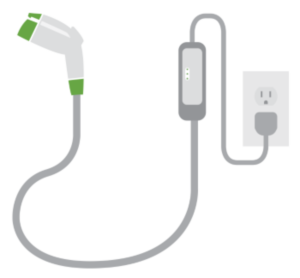
Level 1 is the slowest method, but sufficient for drivers who charge overnight and travel 30-40 miles per day. All electric cars come with a cable that can be plugged into a standard wall outlet with no equipment installation required. Level 1 works well at home, work or anywhere—when you have sufficient time to charge. Level 1 charging is ideal for plug-in hybrid electric cars that have smaller batteries, but it can suffice for some battery-electric car owners as well, depending on their daily range needs and length of time typically parked and charging.
Level 1 charging adds about 3.5 – 6.5 miles of driving range per hour of charging time.
Level 2 Charging
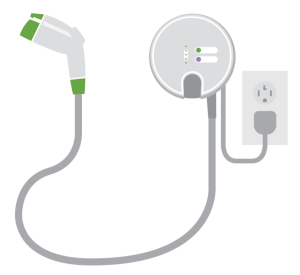
Level 2 charging is considerably faster, but requires installing a charging station, also known as electric vehicle supply equipment (EVSE). Charging station installation requires a dedicated 240-volt or 208-volt electrical circuit, similar to what is required for a clothes dryer or electric range. Level 2 is found at many public and workplace charging stations, and also in many homes. It uses the same standard connector as Level 1 charging, meaning any electric car can plug in at any Level 2 charger.
Depending on battery type, charger configuration and circuit capacity, Level 2 charging adds about 14-35 miles of range per hour of charging time.
Direct Current (DC) Fast Charging
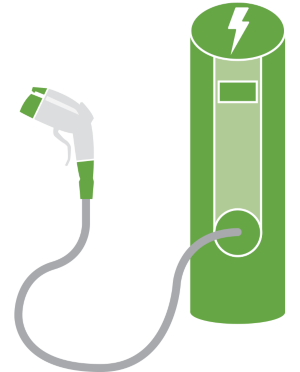
DC fast charging (also known as "Level 3" charging) provides the fastest available fill-up. It requires a 480-volt connection, making DC fast charging unsuitable for home use, and not every electric car model is equipped for it. Stations offering DC fast charging are found in shopping centers and often along major travel corridors, allowing electric car drivers to charge up quickly and take longer trips. DC fast chargers come with a CHAdeMO, Combined Charging System (Combo or CCS) or Tesla connector system. Most DC fast chargers will have both the CHAdeMO and Combo connectors. Explore electric car types and differences in our electric car overview.
Depending on battery type, charger configuration and circuit capacity, DC fast charging can add up to 10 miles of range per minute of charging time.
Electric Car Charging Costs
Cost of Installing a Charger at Home
If you decide to install a Level 2 charger at home, the installation costs will depend on the system you select, permitting fees in your area and your home’s configuration. Incentives may be available to offset these expenses.
Cost to Charge at Home
Charging costs depend on your electric car’s battery size and the local price of electricity. Most electric utilities offer special time-of-use (TOU) rates that greatly reduce costs by billing less for electricity used during off-peak hours. Contact your electric utility to find out more. Find out how simple home charging is for current electric car drivers.
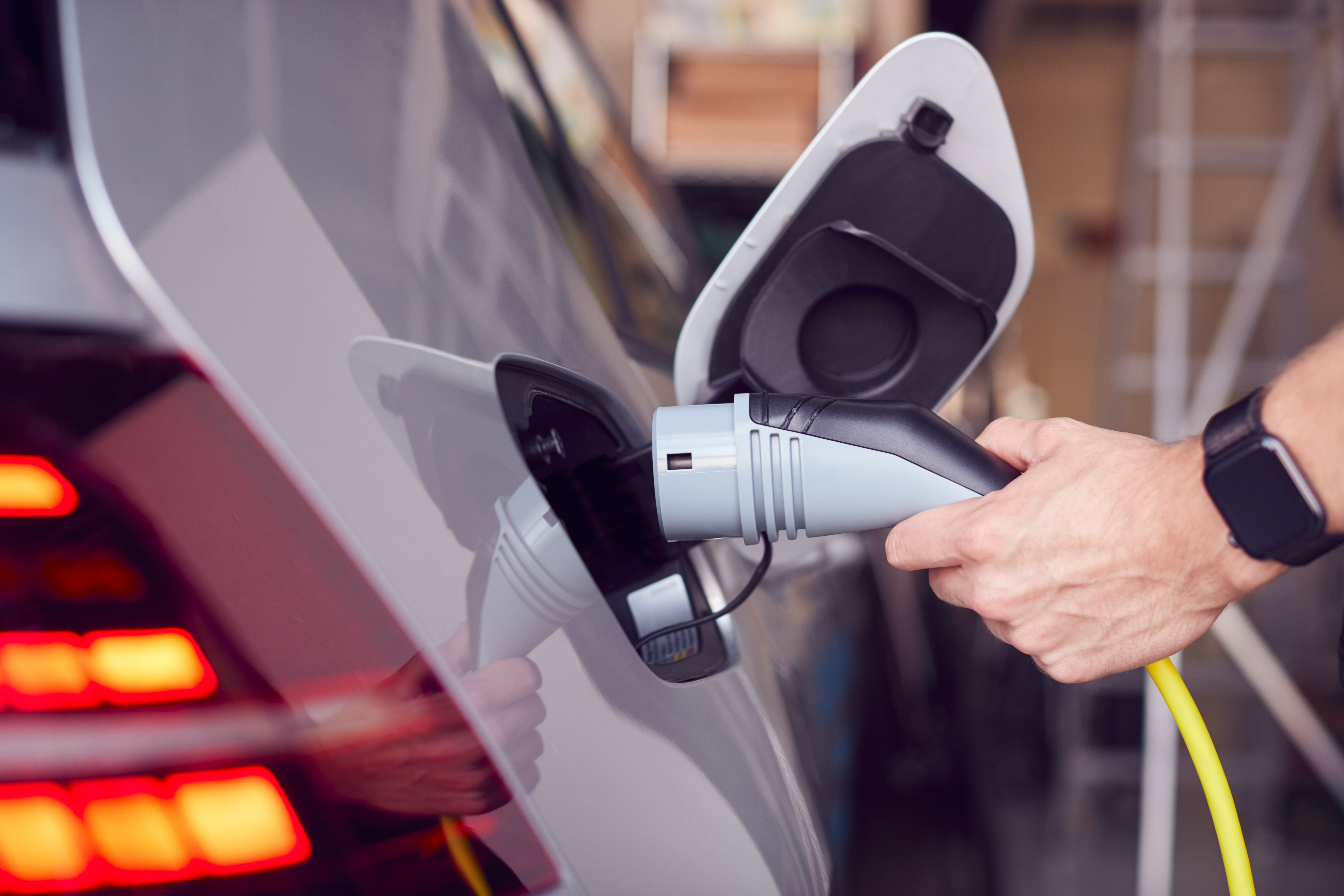
While electricity costs vary, the average price in California is about 18 cents per kilowatt hour (kWh). At this price, charging an electric car such as the Nissan LEAF with a 40-kWh battery with a 150-mile range would cost about $7 to fully charge. Meanwhile, fueling a 25-mpg gas vehicle at a gas price of $4.30 per gallon would cost about $26 for enough gas to drive approximately 150 miles. Saving money on fuel is just one of the many benefits of driving electric.
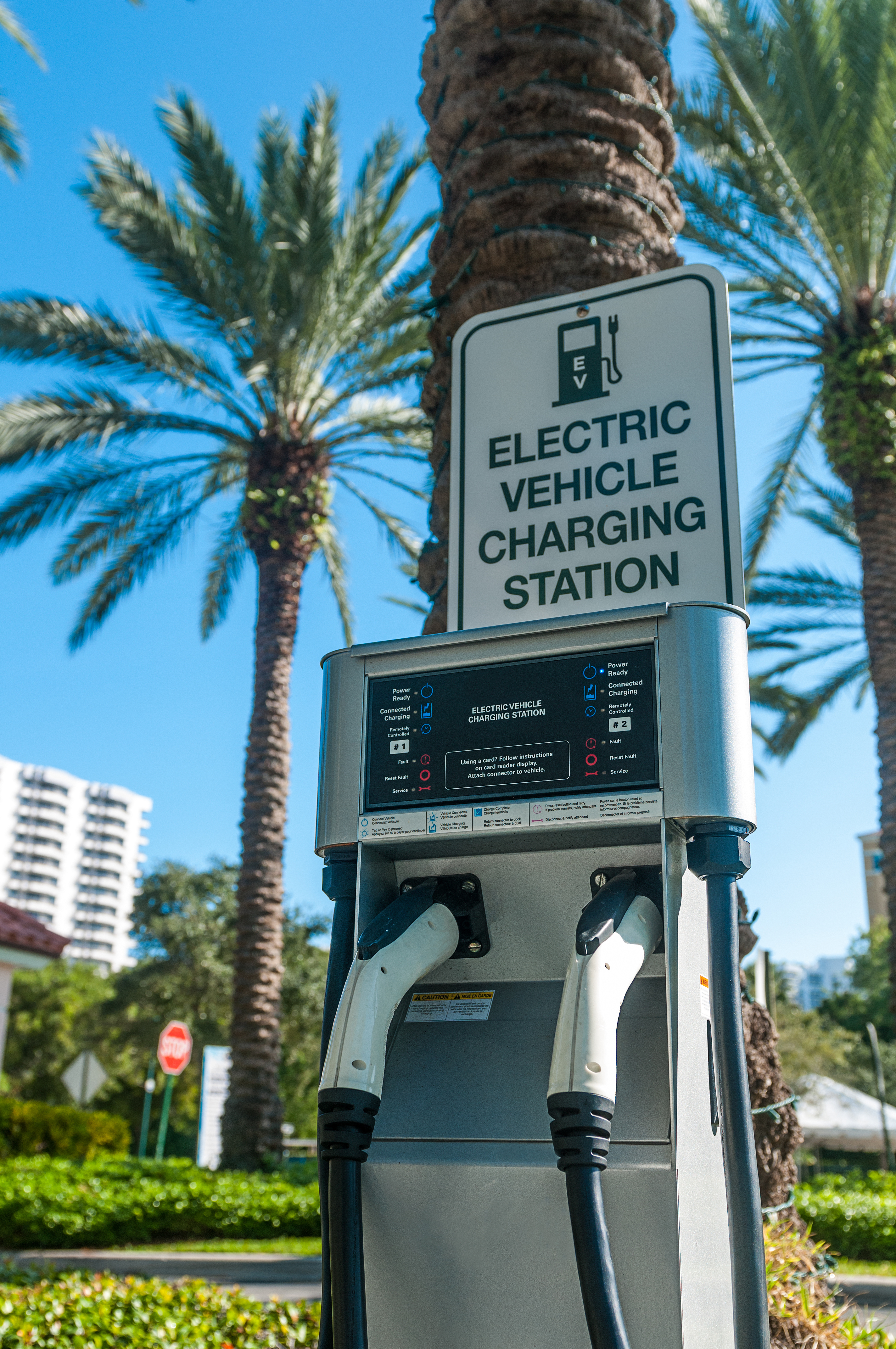
Public Charging Costs
Many people charge their electric car at public charging stations. They can be free, pay-as-you-go or subscription-based, with prices set by networks or property owners. Some automakers, such as Hyundai, Nissan and Tesla may provide complimentary public charging at certain chargers. The industry is moving toward a fee structure based on kWh used, rather than by the time it takes to charge the car.
Drivers in California may expect to pay 30 cents per kWh to charge on Level 2, and 40 cents per kWh for DC fast charging. At these rates, the same Nissan LEAF with a 150-mile range and 40-kWh battery would cost about $12 to fully charge (from empty to full) using Level 2, and $16 with DC fast charging.
Several apps and online tools will help you locate public charging, including PlugShare's international database.
Charging Station Rebates
Rebates for Residential Level 2 Charging Stations
Many California electric utility providers and air districts offer rebates to make home Level 2 charging more affordable. Find available incentives where you live.
Rebates for Commercial Electric Car Charging Stations
Property owners that install public commercial charging stations may be eligible for rebates. Electric car charging can attract more traffic to your business, improve tenant or employee satisfaction and retention, and generate a new revenue stream (fees for charging). Find information on rebate eligibility and funding availability.
